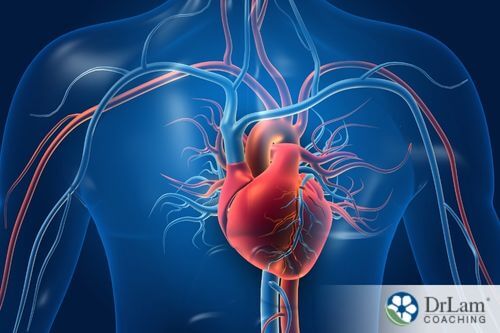 Do you occasionally forget where you put the car keys and have to spend ten minutes looking for them? Don't worry, all of us are forgetful sometimes. Real memory loss, however, involves forgetting the way home, not remembering the name of a loved one, or even forgetting to eat. While it is often a sign of the aging process, it can also be related to one of the conditions associated with dementia. But significant memory loss is often preventable by making certain lifestyle changes early in your life - the younger the better.
Do you occasionally forget where you put the car keys and have to spend ten minutes looking for them? Don't worry, all of us are forgetful sometimes. Real memory loss, however, involves forgetting the way home, not remembering the name of a loved one, or even forgetting to eat. While it is often a sign of the aging process, it can also be related to one of the conditions associated with dementia. But significant memory loss is often preventable by making certain lifestyle changes early in your life - the younger the better.
Forgetting something now and then is a normal part of the aging process. But when memory loss impacts your everyday life, you may need to talk to a healthcare professional about the issue. It may be time to seek professional help if you notice that you, or a loved one, show the following signs:
Brain fog is not a medical issue. Many people have brain fog at some point in their lives. It usually results from such diverse issues as lack of sleep, stress, toxin overload, gut dysbiosis, hormone imbalance, or overworking. Brain fog symptoms include, amongst others, forgetfulness, confusion, and even a lack of mental clarity.
Memory loss due to aging, or mild cognitive impairment, refers to older people who may forget things more often than others their age. They can, however, still take care of themselves quite well. Symptoms of mild cognitive impairment usually associated with the aging process include the following:
Dementia is not a normal result of the aging process. A broad term that encompasses various forms of cognitive dysfunction, dementia symptoms include memory loss and impairment of learning, thinking, and reasoning skills. Those with dementia may also have issues with their attention span, language skills, and visual perception. Many, depending on the type of dementia, may undergo personality changes.
Alzheimer’s disease, the most common form of dementia, usually occurs in people over the age of sixty-five years. The most common Alzheimer’s symptoms include the following:
Your brain is your body’s command center for all functions, whether voluntary or involuntary. In other words, it not only controls your ability to think and feel, but also all body functions like walking, breathing, etc. Maintaining brain health is thus the most important thing you can do for your continued health and well-being into old age.
As people age, however, brain health sees a decline that often results in diverse neurological disorders, such as memory loss.
 Neurological conditions may not only disrupt brain function but also impact your general health. The three main types of brain disorders include:
Neurological conditions may not only disrupt brain function but also impact your general health. The three main types of brain disorders include:
Keep in mind that various neurological conditions may have overlapping effects on your brain. They may thus share many symptoms. This makes determining the cause of brain dysfunction difficult at times. Some symptoms may prove very generic. A healthcare provider may not immediately associate them with a brain disorder at first.
There are no effective approaches that reverse brain dysfunction or major neurological disorders like Alzheimer’s disease. Instead, approaches tend to focus on contributing factors like gut health, inflammation, and vascular conditions. By addressing the contributing factors, you may help reduce your risk or slow down cognitive decline.
Your diet plays a key role in memory loss. The western diet, high in sugar, saturated fats, and processed foods, tends to add to your body’s stress load. A healthy diet, however, provides your body with the vitamins, minerals, and nutrients it needs to keep all processes up and running. It should also provide enough fiber to help with your body’s elimination process, thereby helping with detoxification as well.
Two diets stand out when it comes to healthy eating for memory loss reduction: the Mediterranean diet, and the DASH (Dietary Approaches to Stop Hypertension) diet. Both these diets promote cardiovascular health, reduce inflammation, and may help lower your risk of cognitive decline. You could also consider the MIND (Mediterranean-DASH Intervention for Neurodegenerative Delay) diet. This combination of the Mediterranean and DASH diets may help prevent dementia as well as a loss of cognitive function due to the aging process.
Literature suggests a strong correlation between your diet and Alzheimer’s disease. A diet low in saturated fats, but rich in leafy greens and omega-3 fatty acids may help promote brain health into your latter years. You should thus try to include plenty of fatty fish, fruits, nuts, vegetables, and olive oil in your diet while limiting your consumption of red meat as much as possible.
Something else to consider is your use of stimulants like coffee. While coffee can help you focus, too much coffee may interfere with your ability to sleep.
Enough quality sleep may reduce your risk of memory loss. Good quality sleep refers to sleeping for anything between seven and nine hours a night. Doing so may help with your brain’s detoxification process and help with memory consolidation. The toxins in your brain, called beta-amyloids, may contribute to Alzheimer’s disease as well as other types of dementia.
If getting good quality sleep is a problem, here are a few things you can try before going to bed:
 Your heart health plays a significant role in brain health. Your blood vessels keep your brain healthy due to the oxygen and other nutrients moved to your brain via your blood. High blood pressure and high cholesterol levels impede heart health and, thus, brain health. When artery walls thicken and atherosclerosis sets in, the blood supply to the brain decreases. This could result in a stroke that could cause permanent brain damage and also contribute to memory loss.
Your heart health plays a significant role in brain health. Your blood vessels keep your brain healthy due to the oxygen and other nutrients moved to your brain via your blood. High blood pressure and high cholesterol levels impede heart health and, thus, brain health. When artery walls thicken and atherosclerosis sets in, the blood supply to the brain decreases. This could result in a stroke that could cause permanent brain damage and also contribute to memory loss.
A healthy diet and an active lifestyle may help prevent these cardiovascular issues. They may also help promote a healthy weight. Obesity is one of the main contributors to the occurrence of high blood pressure and heart disease.
Literature suggests that exercise has many health benefits, including reducing your risk of cognitive decline and memory loss. This may be due to physical activity increasing the blood flow to your brain. It also promotes the release of certain brain hormones and induces the production of new, healthy cells.
Interestingly, exercise may increase the size of your hippocampus. This part of your brain is involved with memory and tends to shrink when you age.
But exercise does not necessarily mean strenuous training like that done by marathon runners or bodybuilders. Thirty minutes to an hour of gentle exercise a few times a week may suffice. This includes walking, yoga, or swimming. The aim is to increase your heart rate but not exhaust yourself. Strenuous exercise may further compromise adrenal health in those suffering from adrenal fatigue.
Your brain is a muscle. And like any muscle, if you do not use it, it atrophies over time. But unlike a muscle in your body, physical exercise will not make it stronger, albeit it will help improve brain function as already discussed.
Instead, mental stimulation is key. You need to continually do things that keep your cognitive processes in shape. This could include playing certain brain games like doing a jigsaw or taking part in card games. Learning new skills like how to play an instrument, starting a new hobby, learning a new language, or learning how to cook are also great ways to keep your brain in shape.
Mental stimulation of any kind will help create new connections between the different brain cells while using existing neural circuits. In so doing, you may help slow down or reduce your risk of neurodegenerative diseases.
Many of us tend to put on the television to watch a movie or program when bored. However, this could cause isolation and may promote depressive thoughts. Instead, socialize with your friends or family. Call them, visit them, or meet them at a coffee shop. Stay connected with what goes on in their lives.
If you have few friends or family members to socialize with, joining a book club or taking up a new hobby may help you forge new friendships.
Staying socially active may promote brain health, according to literature. This is because you use different parts of your brain simultaneously. You need to listen, take in what is said, and formulate responses continuously, thereby exercising your brain.
Chronic stress can lead to a cascade of health issues that can affect memory and cognitive function. It can cause neurotransmitter imbalance, detoxification issues, inflammation, and more. You can manage stressors by identifying them in your life and working to reduce them. You can also try practices like yoga, meditation, starting a new hobby, or spending time with friends or a pet to reduce stress.
Your Detoxification and Neuroaffect Circuits both form part of your body’s NeuroEndoMetabolic (NEM) stress response. Your NEM stress response starts with the Hypothalamic-Pituitary-Adrenal (HPA) axis and is responsible for the various actions conducted throughout the body when you experience periods of stress.
 Stress, with its increase in stress hormone production, requires you to be alert and able to make snap decisions to help deal with the stressor. It also readies your body to either fight or flee, depending on circumstances. But when the stressor has passed, the NEM stress response signals all systems to return to normal.
Stress, with its increase in stress hormone production, requires you to be alert and able to make snap decisions to help deal with the stressor. It also readies your body to either fight or flee, depending on circumstances. But when the stressor has passed, the NEM stress response signals all systems to return to normal.
However, continued stress results in a NEM stress response that stays on the alert indefinitely. Here we may see a number of health issues arising. These health issues are, more often than not, symptoms of overtaxed adrenal glands that can no longer keep up with the demand for higher stress hormone production, or adrenal fatigue. Besides its impact on your body as a whole, it may also give rise to Detoxification and Neuroaffect Circuit dysfunctions.
Your Detoxification Circuit plays a crucial role during NEM activation. It serves to remove any excessive reactive metabolites resulting from stress. Although the liver is the main organ responsible for this function, your brain can also remove metabolites in its immediate vicinity. It does this via the glymphatic system, the system of blood vessels extending throughout your body that plays a role in removing waste from different body areas to the liver.
However, a system in distress may see a buildup of these reactive metabolites and a detoxification system unable to remove the load. As a result, a variety of health issues may develop. These include, amongst numerous others, brain fog, memory issues, anxiety, depression, and an inability to pay attention for extended periods.
Your brain, autonomic nervous system, and microbiome make up the three components of the Neuroaffect Circuit. The triad makes use of neurotransmitters, i.e., chemical messengers, to communicate.
The autonomic nervous system plays a role in hormone production and usage, stress management, and recuperation after a stressor passes. Continuous autonomic nervous system activation may slowly result in an inability to recuperate. This may lead to various disorders, like insomnia due to the dysregulation of your circadian rhythm.
You may also experience a neurotransmitter disruption. This is due to hormone dysregulation resulting from constantly elevated stress hormone production. Many hormones function as neurotransmitters.
Your gut microbiome consists of millions of diverse organisms working in harmony to ensure a well-working gut. Chronic stress can bring about an imbalance in your gut microbiome. Furthermore, gut and brain health are interdependent and communicate through the vagus nerve. A dysfunction in one can contribute to a dysfunction in the other.
Gut dysbiosis, i.e., an imbalance in gut bacteria composition, may result in a leaky gut, where bacteria and other pathogens in the gut can enter your bloodstream and travel throughout your body. This includes your brain. It can trigger an immune response resulting in inflammation, which can worsen brain health.
Memory loss may increase with aging. But it may also form part of an underlying issue. However, by adjusting your diet and lifestyle, you may reduce your risk of cognitive decline.
If you would like to know more about memory loss and what to do about it, the team at Dr. Lam Coaching can help. We offer a free** no-obligation phone consultation at +1 (626) 571-1234 where we will privately discuss your concerns and options. You can also send us a question through our Ask The Doctor system by clicking here.
Memory loss is one of the many possible symptoms of adrenal fatigue. Many people find that by addressing adrenal issues, they may see an improvement in their cognitive function. Do remember, though, that there are some cognitive disorders like Alzheimer's disease that are not reversible.
